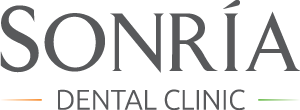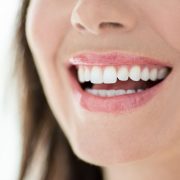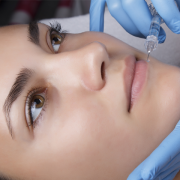Top Tips for a Healthy Smile
Having good oral health is really important.
A healthy smile doesn’t only benefit your mouth, it also helps you achieve better physical and mental wellbeing.
The good news is that a healthy mouth is easy to achieve!
1-Brush your teeth twice day
Brushing removes leftover food particles that can bond with saliva to form plaque. These particles feed the bacteria that naturally live in our mouths. Their digestive acids can eat through our tooth enamel, causing decay and gum disease.
Brushing for two minutes, first thing in the morning and last thing at night, with a fluoride toothpaste, is key to maintaining good oral health.
3-Flossing is as important as brushing
It removes plaque from places that your toothbrush alone can’t reach. If plaque is allowed to remain in these hard-to-reach areas, it will lead to tooth decay and gum disease. The latter has been linked to increased risk of cardiovascular problems, Alzheimer’s, respiratory disease, rheumatoid
arthritis, coronary artery disease and problems controlling blood sugar in diabetes.
4-Use toothpaste with fluoride
Fluoride helps strengthen tooth enamel, making it an important additive to toothpaste. Using toothpaste and/or mouthwash with fluoride can reverse tooth decay at early stages, reducing the need for fillings.
5-Limit sugar intake
The bacteria in our mouths thrives on sugar. This is a major contributor to tooth decay. Reducing the amount of sugar in your diet, combined with regular brushing and flossing, can help keep the bacteria under control.
6-See your dentist at least once a year
Regular dental examinations are necessary for preserving your oral health. Your dentist is trained to recognize early signs of tooth decay, gum disease and oral cancer, before they turn severe. This can help you avoid complicated and expensive dental procedures.
7-Maintain a healthy diet
A healthy diet is important, not just for overall wellbeing, but for your teeth in ways you might not expect. In addition to good nutrition that helps your bones and teeth grow and stay healthy, a lot of fruits and vegetables are crunchy and chewy. These promote the production of saliva. More saliva means the mouth is naturally washed out more often.
8-Stay hydrated
Keeping your body hydrated helps your mouth produce enough saliva to keep your teeth clean. Saliva natural washes out the mouth, removing oral bacteria and the food particles that they feed upon.
Your body needs water to function effectively. The same goes for your mouth. With a super dry mouth, particles are more likely to stick to your teeth, leading to potential decay and cavity formation. Sip water throughout the day, and don’t wait until you’re thirsty. By then, dehydration has already set in.
9-Don’t forget your tongue
When you brush your teeth, don’t forget to run the brush over your tongue to remove accumulated foul-smelling bacterial waste that causes bad breath.
10-Don’t chew on hard items
This may seem like common sense. Try not
to bite down on hard candies or non-food items like pen caps or fingernails. They are not to be chewed and can damage and break your teeth.
Your teeth are not “tools” to open things. This is a bad idea as you can crack or chip a tooth.
11-Take care of your toothbrush
Your toothbrush doesn’t need any special cleaning, but make sure it dries after each use and there is no leftover toothpaste. Store it upright and exposed to air. You should change your toothbrush every three to four months.
12-Reduce Acid diet and Stains on your teeth
Certain foods and drinks are more likely to stain teeth than others. Some foods and drinks to limit include red wine, coffee, cola, tomato sauce, chocolate, soy sauce, dark berries, and tea. It’s also advisable to reduce your intake of highly acidic foods and drinks which can wear away at the tooth’s enamel. Anything in moderation usually works, and if you’re not sure what may be staining your teeth, talk to your dentist to get to the bottom of it.
13-A Straighter Smile
Having that “Hollywood” smile is not only about looks alone. If your teeth are crowded, crooked, or your bite is off, it could cause problems that are more than aesthetically displeasing. Your teeth could shift and spacing could develop. Severely crowded teeth could become hard to brush effectively, leading to food getting lodged between them. This will cause gum disease and/or dental decay.
14-Dealing With Missing Teeth
If you have any missing teeth, it can compromise your entire smile. The gap left behind may cause the surrounding teeth to shift, creating a domino effect that could reshape your entire bite. Not only is a missing tooth unflattering, but the damage potential is large. Your dentist can fit you a sturdy replacement that will look and function just like a real tooth.
15-Get Over Grinding And Combat Clenching
You may not even realize that you clench your jaw or grind your teeth. This puts stress on your whole mouth and can cause pain, headaches, the wearing away of the enamel and/or fractured teeth. If you suspect you are doing either of these things, talk to your dentist. You may require a night guard. You do not want to chip or crack a tooth before you seek a solution.
16-Use Your Own Toothbrush – Sharing Isn’t Smart
Forgot your toothbrush while staying over at someone else’s place? If they don’t have a spare, don’t share. Either skip brushing this one time or swish some toothpaste and mouthwash around your mouth to freshen up. Sharing can introduce bacteria into your mouth, something far worse than missing one brushing session.
17-Skip The Sugary Snacks
For those with a sweet tooth, giving up their favorite treats is a tough ask. Cookies, cakes, candies, and chocolates are oh so tempting, but they can eat away at your teeth. Reduce the sugary snacks, and try some fresh fruit instead.
18-Start cleaning in-between your teeth
Brushing may come before flossing in the dictionary, but it shouldn’t when it comes to our teeth. Research shows that interdental cleaning before brushing is the best way to clean our teeth effectively.
The action of cleaning in between our teeth, using interdental brushing, dental floss or water or air flossers, loosens bacteria and food debris from between our teeth. This allows brushing to be much more successful at removing plaque.
19-Spit, don’t rinse
After we have brushed our teeth, we should spit out the toothpaste and NOT rinse! This ensures that the fluoride found in the majority of toothpastes will remain on the teeth and continue to be effective in protecting them.
Fluoride is the most important ingredient in the toothpaste. It greatly helps oral health by strengthening the enamel, making it more resistant to tooth decay.
20-Try a fluoride mouthwash
You can provide a boost to your oral health by using a fluoride mouthwash between brushes. This helps to clear the mouth of debris. It also aids you in stopping plaque from building-up on your gums, in-between teeth, and on the their surface.
Mouthwash can help to freshen our breath by killing the bacteria associated with bad breath.
Note, mouth washing is NOT a replacement for toothbrusing.
21-Beware of snacking
Try and maintain a healthy balanced diet. For our teeth it’s important to avoid sugar and acids, when we can.
Snacking every now and again may seem harmless but can actually do more damage than you think.
Many of us are guilty of regularly skipping meals and eating sugary snacks instead.
It’s far better for our teeth and general health if we eat three meals a day instead of having snacks to get us through.
22-It’s never too early or too late
For children, it’s never too early to learn about the importance of great oral health and how to achieve it. Brushing twice a day, using fluoridated toothpaste and seeing the dentist 2 to 3 times a year.
The dentist can stop small decay from getting worse with preventative measures such as fluoride applications and fissure sealants.











Leave a Reply
Want to join the discussion?Feel free to contribute!